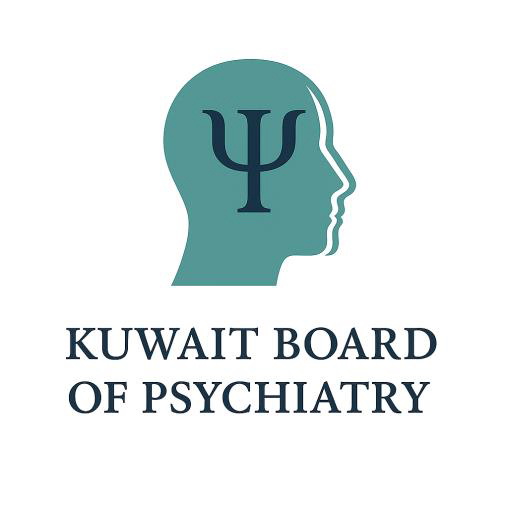MEDICAL EXPERT
- Knowledge: Demonstrates an effective level of clinical knowledge and understanding of the following topics in the geriatric population:
1.1 The resident should be able to identify the differences in the etiology, symptoms and course of illness of the presentation of psychiatric disorders in the geriatric population
1.2 The resident should become knowledgeable about how to make a diagnosis of Major Cognitive Disorder (dementia), to distinguish between Major Cognitive Disorder (dementia) and delirium, the pathophysiology of Major Cognitive Disorder (dementia), the subtypes of common types of Major Cognitive Disorders (vascular, Lewy Body, Alzheimer’s ).
1.3 The resident should be able to develop a diagnostic formulation that integrates psychiatric and medical features in the elderly.
1.4 The resident should develop understanding of normal and abnormal development
1.4.1 Psychological aspects of aging
1.4.1.1 Developmental theories
1.4.1.2 Cognitive function
1.4.2 Social aspects of aging
1.4.2.1 Attitudes and ageism
1.4.2.2 Economic issues
1.4.2.3 Support systems/networks
1.4.2.4 Long term care v. Caregiver issues
1.4.2.5 Elder abuse
1.4.2.6 Sexuality
1.4.3 Biological aspects of aging; age related changes in sensory systems and drug handling.
1.5 Psychopharmacology and somatic therapies (ie ECT) including cognitive enhancers, treatment of delirium and the different prescribing approaches for the elderly
1.6 Cultural/ethnic/gender theoretical, clinical and therapeutic issues
1.7 Community resources with respect to Major Cognitive Disorder (dementia) ( eg Alzheimer’s Society), elder abuse, public prosecutor
1.8 Psychotherapeutic constructs specific to the elderly particularly bereavement, loss, transitions, caregiver burden
1.9 Capacity to manage finances, make personal care decisions, consent to admission to long-term care, give power of attorney, make a will, consent to treatment.
1.10 End of life care (end of life decisions, palliative care principles in the elderly)
2. Clinical Skills: Demonstrate the general ability to assess, diagnose and treat the full range of psychiatric disorders in the geriatric population and in all clinical contexts. By the end of the rotation, residents will be able to:
2.1 Conduct and organize an appropriate interview and exam, including developing rapport, assessing mental status and cognition, assessing functional status ( ADLS, IADLS), and medical/neurological assessment as indicated
2.2 Assess suitability for medical and imaging investigations for assessment and treatment planning
2.3 Conduct and organize an interview with a collateral informant/family member
2.4 Perform an appropriate family assessment to develop an understanding family dynamics and systems
2.5 Synthesize provisional and differential diagnosis.
2.6 Integrate and present a bio-psycho-social understanding/formulation in geriatric psychiatric cases
2.7 Develop and implement an integrated bio-psycho-social treatment plan including:
2.7.1 Use psychiatric, psychological, medical and imaging investigations for assessment and treatment planning.
2.7.2. Make appropriate referrals to other professionals and community resources.
2.7.3. Assess suitability for appropriate psychological treatment, social and environmental interventions, psychopharmacological treatment and somatic therapies
COMMUNICATOR
Residents will have demonstrated the following abilities:
- Communicate effectively with patients with language, sensory or cultural barriers
- Written notes should be concise without losing completeness, timely, and medico-legally appropriate ( eg document informed consent )
- Discuss appropriate information with the health care team.
- Convey to patient and family an accurate, clear, coherent and timely account of the diagnosis, treatment plans and prognosis in all clinical cases.
- Convey pertinent information and opinions to medical colleagues in a timely, efficient and effective manner, in both verbal and written formats.
COLLABORATOR IN GERIATRIC PSYCHIATRY
Residents will have demonstrated the following:
- Consult effectively with other physicians and health care professionals.
- Contribute to interprofessional team activities.
- Ability to work collaboratively with other members of the health care team – recognizing their roles and responsibilities.
LEADER
Residents will be able to demonstrate the following skills as they pertain to geriatric psychiatry:
- Understand and makes effective use of information technology to optimize patient care, life long learning and other activities.
- Ability to direct patients to further assessments or relevant community resources with an appreciation of cost effectiveness and the growing geriatric population
- Set realistic priorities and uses time effectively in order to optimize professional performance consistent with personal / professional goals and obligations.
HEALTH ADVOCATE
Residents will be able to demonstrate:
- Ability to identify and understand the determinants of health affecting geriatric patients and communities, recognizing and responding to those issues where advocacy is appropriate for the patient or community.
SCHOLAR
Residents will be able to demonstrate the following as they pertain to geriatric psychiatry:
- Demonstration of an understanding of and a commitment to the need for continuous learning. Development, implementation and monitoring of a personal and continuing medical education strategy.
- Critical appraisal of medical information. Successful integration of information from a variety of sources.
- Facilitation of the learning of patients, students, residents, and other health professionals through guidance, teaching and constructive feedback.
PROFESSIONAL
Residents will be able to:
- Demonstrate integrity, honesty, compassion and respect for diversity when working with elderly patients and their families.
- Demonstrate a realistic, hopeful, and anti-ageist attitude toward the care of the elderly.
- Fulfill medical, legal and professional obligations of the psychiatrist, practicing within the Code of Ethics Annotated for Psychiatry.
- Engage in collaborative and respectful patient relationships that demonstrate gender, cultural and spiritual awareness.
- Demonstrate responsibility, dependability, self-direction, and punctuality.
- Accept and use supervision and feedback in a constructive manner.
- Demonstrate awareness of personal limitations.

